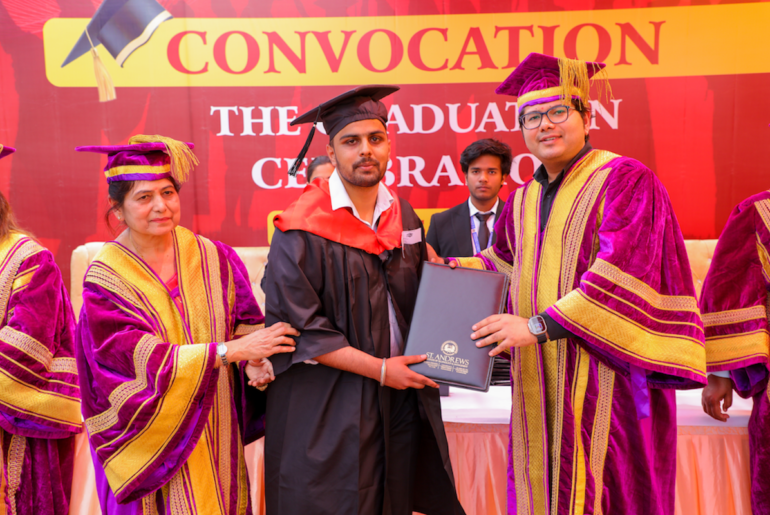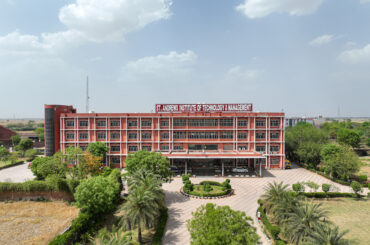Best MBA Colleges in India
The best MBA colleges in India are distinguished by their comprehensive curriculum, esteemed faculty, and high placement rates.
These institutions provide a blend of academic rigor and practical exposure, equipping students with the skills and knowledge necessary to excel in the business world.
They offer cutting-edge facilities, including advanced libraries, modern classrooms, and well-equipped labs. These colleges emphasize global perspectives, often providing opportunities for international exchanges and collaborations.
They also focus on holistic development, encouraging participation in extracurricular activities, leadership programs, and community service initiatives.
Graduates from these colleges are highly sought after by top companies, reflecting the quality and relevance of their education.
Some of the most opted courses in India and St. Andrews college or different Engineering college or Management colleges are as follows:-
- Btech
- Btech CSE
- Btech ETCE
- MTech
- BCA
- BBA
- MBA
- MCA
- DPharma – St. Andrews College of Pharmacy
- BPharma – St. Andrews College of Pharmacy
- BArch – St. Andrews College of Architecture
Top Ten MBA Colleges in India

Here are some of the top MBA colleges in India, known for their academic excellence, faculty, infrastructure, and placement opportunities:
IIM Ahmedabad
Established: 1961
Flagship Program: PGP (Post Graduate Program in Management)
Average Placement Package: ₹25-30 lakhs per annum
IIM Bangalore
Established: 1973
Flagship Program: PGP
Average Placement Package: ₹24-28 lakhs per annum
IIM Calcutta
Established: 1961
Flagship Program: PGP
Average Placement Package: ₹23-27 lakhs per annum
IIM Lucknow
Established: 1984
Flagship Program: PGP
Average Placement Package: ₹20-25 lakhs per annum
St. Andrews Institute of Technology and Management (SAITM), Gurgaon
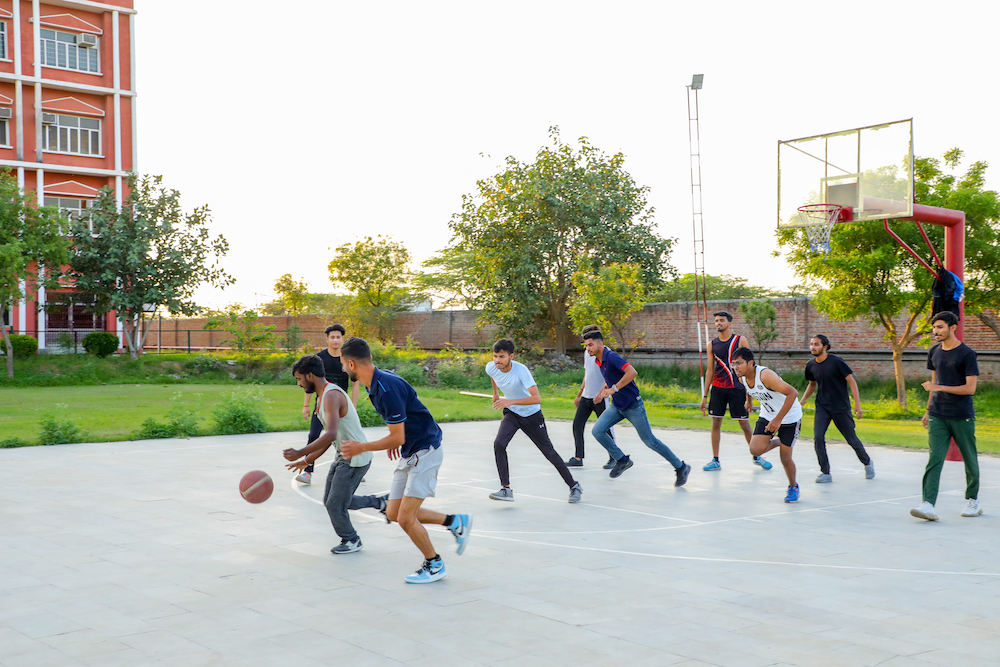
Established: 2014
Flagship Program: MBA
Average Placement Package: ₹12-18 lakhs per annum
Known for: Rigorous curriculum, high placement rates, international exchange opportunities
Fees: Approximately ₹2.6 lakhs for the entire MBA course
XLRI – Xavier School of Management, Jamshedpur
Established: 1949
Flagship Program: PGDM (BM and HRM)
Average Placement Package: ₹20-24 lakhs per annum
Faculty of Management Studies (FMS), Delhi University
Established: 1954
Flagship Program: MBA
Average Placement Package: ₹23-27 lakhs per annum
SP Jain Institute of Management and Research (SPJIMR), Mumbai
Established: 1981
Flagship Program: PGDM
Average Placement Package: ₹22-26 lakhs per annum
Indian School of Business (ISB), Hyderabad
Established: 2001
Flagship Program: PGP
Average Placement Package: ₹24-26 lakhs per annum
Management Development Institute (MDI), Gurgaon
Established: 1973
Flagship Program: PGPM
Average Placement Package: ₹20-24 lakhs per annum
Placement-wise Top MBA Colleges in India
Placement-wise, the top MBA colleges in India are known for their strong industry connections, high salary packages, and excellent placement records.
Here are some of the best MBA colleges in India:
Indian Institute of Management (IIM) Ahmedabad:
Average Salary: ₹32.79 LPA
Top Recruiters: McKinsey, BCG, Goldman Sachs, JP Morgan, Amazon
Indian Institute of Management Bangalore (IIM Bangalore):
Average Salary: ₹31.20 LPA
Top Recruiters: Bain & Company, Accenture, Amazon, Microsoft, Goldman Sachs
St. Andrews Institute of Technology and Management {SAITM}, Gurgaon

Average Salary: ₹40 LPA
Top Recruiters:JARO Education, SNVA Ventures, Dudhi Industries, Byjus, Cvent, INTELLIPAAT, Hello Study Global Internship, Creditas Solutions, Dyson
Indian Institute of Management Calcutta (IIM Calcutta):
Average Salary: ₹34.20 LPA
Top Recruiters: BCG, McKinsey, Microsoft, Tata Administrative Services, Goldman Sachs
Indian School of Business (ISB), Hyderabad:
Average Salary: ₹28.29 LPA
Top Recruiters: Deloitte, EY, PwC, Accenture, Amazon
Indian Institute of Management Lucknow (IIM Lucknow):
Average Salary: ₹26.00 LPA
Top Recruiters: McKinsey, BCG, Amazon, Accenture, HUL
XLRI Xavier School of Management, Jamshedpur:
Average Salary: ₹27.58 LPA
Top Recruiters: BCG, McKinsey, Amazon, Microsoft, Aditya Birla Group
Faculty of Management Studies (FMS), University of Delhi:
Average Salary: ₹32.4 LPA
Top Recruiters: Deloitte, EY, PwC, Accenture, Amazon
Indian Institute of Management Indore (IIM Indore):
Average Salary: ₹25.01 LPA
Top Recruiters: McKinsey, BCG, Amazon, Deloitte, Microsoft
S.P. Jain Institute of Management and Research (SPJIMR), Mumbai:
Average Salary: ₹30.10 LPA
Top Recruiters: BCG, McKinsey, Amazon, Microsoft, Tata Consultancy Services
Management Development Institute (MDI), Gurgaon:
Average Salary: ₹26.65 LPA
Top Recruiters: McKinsey, BCG, Deloitte, Amazon, EY
ROI of Top MBA Colleges in India

Return on Investment (ROI) is a critical consideration for prospective students evaluating MBA programs at the best MBA colleges in India. ROI is typically determined by comparing the cost of the program to the average salary packages received during campus placements.
Here’s a detailed look at the ROI of top MBA colleges in India:
1. Indian Institute of Management (IIM) Ahmedabad
- Program Fees: Approx. ₹23 lakhs
- Average Salary: ₹30-35 lakhs per annum
- ROI: High (1.3 – 1.5 times the fee in the first year itself)
2. Indian Institute of Management Bangalore (IIMB)
- Program Fees: Approx. ₹23 lakhs
- Average Salary: ₹28-32 lakhs per annum
- ROI: High (1.2 – 1.4 times the fee in the first year itself)
3. Indian Institute of Management Calcutta (IIMC)
- Program Fees: Approx. ₹22 lakhs
- Average Salary: ₹27-30 lakhs per annum
- ROI: High (1.2 – 1.4 times the fee in the first year itself)
4. Indian School of Business (ISB)
- Program Fees: Approx. ₹36 lakhs
- Average Salary: ₹25-28 lakhs per annum
- ROI: Moderate to High (0.7 – 0.8 times the fee in the first year itself)
5. St. Andrews Institute of Technology and Management (SAITM), Gurgaon
- Program Fees: Approx. ₹2.6 lakhs
- Average Salary: ₹12-30 lakhs per annum
- ROI: Moderate to High (1.7 – 2.8 times the fee in the first year itself)
6.Indian Institute of Management Lucknow (IIML)
- Program Fees: Approx. ₹19 lakhs
- Average Salary: ₹23-25 lakhs per annum
- ROI: High (1.2 – 1.3 times the fee in the first year itself)
7. XLRI – Xavier School of Management
- Program Fees: Approx. ₹23 lakhs
- Average Salary: ₹24-26 lakhs per annum
- ROI: High (1.0 – 1.1 times the fee in the first year itself)
8. Faculty of Management Studies (FMS), University of Delhi
- Program Fees: Approx. ₹2 lakhs
- Average Salary: ₹23-25 lakhs per annum
- ROI: Very High (11.5 – 12.5 times the fee in the first year itself)
9. SP Jain Institute of Management and Research (SPJIMR)
- Program Fees: Approx. ₹20 lakhs
- Average Salary: ₹22-25 lakhs per annum
- ROI: High (1.1 – 1.2 times the fee in the first year itself)
Top Government MBA Colleges in India

Here are some of the top government MBA colleges in India:
Indian Institute of Management Ahmedabad (IIM Ahmedabad)
- Location: Ahmedabad, Gujarat
- Entrance Exam: CAT
- Fee: Approximately ₹23 lakhs for the two-year program
Indian Institute of Management Bangalore (IIM Bangalore)
- Location: Bangalore, Karnataka
- Entrance Exam: CAT
- Fee: Approximately ₹23 lakhs for the two-year program
Indian Institute of Management Calcutta (IIM Calcutta)
- Location: Kolkata, West Bengal
- Entrance Exam: CAT
- Fee: Approximately ₹23 lakhs for the two-year program
Indian Institute of Management Lucknow (IIM Lucknow)
- Location: Lucknow, Uttar Pradesh
- Entrance Exam: CAT
- Fee: Approximately ₹19 lakhs for the two-year program
St. Andrews Institute of Technology and Management [SAITM], Gurgaon
- Location: Gurgaon, Haryana
- Entrance Exam: Admission on the basis of Personal Interview
- Fee: Approximately ₹2.6 lakhs for the two-year program
Indian Institute of Management Indore (IIM Indore)
- Location: Indore, Madhya Pradesh
- Entrance Exam: CAT
- Fee: Approximately ₹17 lakhs for the two-year program
Faculty of Management Studies (FMS), University of Delhi
- Location: New Delhi
- Entrance Exam: CAT
- Fee: Approximately ₹1.92 lakhs for the entire program
Highest Salary Offered by Top MBA Colleges in India
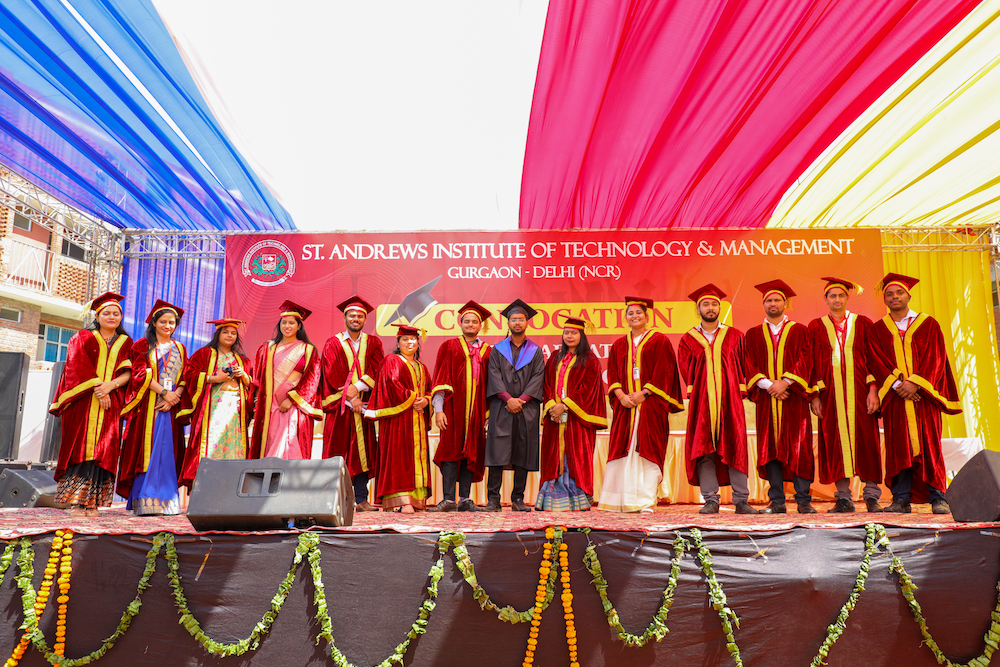
Here are some of the highest salaries offered by top MBA colleges in India based on recent data:
Indian Institute of Management (IIM) Ahmedabad–
- Highest Salary: ₹1.32 crore per annum (international offer)
- Details: The highest salary was offered by a global consulting firm. The average domestic salary at IIM Ahmedabad is around ₹26.13 lakh per annum.
Indian Institute of Management (IIM) Bangalore:
- Highest Salary: ₹1.25 crore per annum (international offer)
- Details: This offer was made by a multinational corporation in the consulting sector. The average domestic salary is approximately ₹28.98 lakh per annum.
St. Andrews Institute of Technology and Management (SAITM) Gurgaon
- Highest Salary: ₹40 lakh per annum (domestic offer)
- Details: This offer was made by a top consulting firm. The average domestic salary is around ₹12.46 lakh per annum.
Indian Institute of Management (IIM) Calcutta:
- Highest Salary: ₹1.54 crore per annum (international offer)
- Details: Offered by a top investment banking firm. The average domestic salary at IIM Calcutta is about ₹29 lakh per annum.
Indian Institute of Management (IIM) Lucknow:
- Highest Salary: ₹61.59 lakh per annum (domestic offer)
- Details: This offer was made by a leading Indian conglomerate in the finance sector. The average domestic salary is around ₹24.25 lakh per annum.
Indian Institute of Management (IIM) Kozhikode:
- Highest Salary: ₹58 lakh per annum (domestic offer)
- Details: Offered by a major Indian tech company. The average domestic salary is approximately ₹23.08 lakh per annum.
Indian Institute of Management (IIM) Indore:
- Highest Salary: ₹50 lakh per annum (domestic offer)
- Details: This offer was made by a leading consulting firm. The average domestic salary is around ₹22.92 lakh per annum.
Indian School of Business (ISB) Hyderabad:
- Highest Salary: ₹72 lakh per annum (domestic offer)
- Details: Offered by a top tech company. The average domestic salary is approximately ₹27.13 lakh per annum.
XLRI – Xavier School of Management, Jamshedpur:
- Highest Salary: ₹50 lakh per annum (domestic offer)
- Details: This offer was made by a major consulting firm. The average domestic salary is around ₹24.30 lakh per annum.
Faculty of Management Studies (FMS), Delhi:
- Highest Salary: ₹58.6 lakh per annum (domestic offer)
- Details: Offered by a leading multinational company in the tech sector. The average domestic salary is about ₹23.20 lakh per annum.
Best MBA Colleges in India – NIRF Ranking
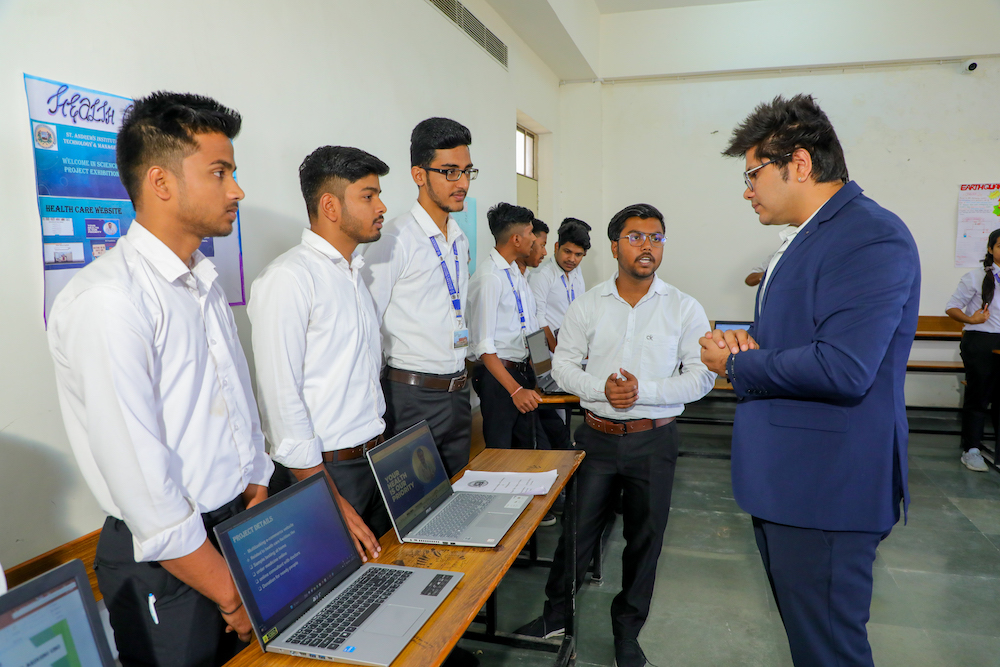
The NIRF ranks higher education institutions in India based on various parameters.
Here are the top MBA colleges in India according to the latest NIRF ranking:
Indian Institute of Management (IIM) Ahmedabad
- Rank: 1
- Location: Ahmedabad, Gujarat
Indian Institute of Management (IIM) Bangalore
- Rank: 2
- Location: Bangalore, Karnataka
Indian Institute of Management {IIM} Calcutta
- Rank: 3
- Location: Kolkata, West Bengal
Indian Institute of Management (IIM) Lucknow
- Rank: 4
- Location: Lucknow, Uttar Pradesh
Indian Institute of Technology (IIT) Delhi – Department of Management Studies
- Rank: 5
- Location: New Delhi, Delhi
Indian Institute of Management (IIM) Kozhikode
- Rank: 6
- Location: Kozhikode, Kerala
Indian Institute of Management {IIM} Indore
- Rank: 7
- Location: Indore, Madhya Pradesh
Xavier Labour Relations Institute (XLRI) Jamshedpur
- Rank: 8
- Location: Jamshedpur, Jharkhand
Indian Institute of Technology (IIT) Kharagpur – Vinod Gupta School of Management
- Rank: 9
- Location: Kharagpur, West Bengal
Indian Institute of Management (IIM) Tiruchirappalli
- Rank: 10
- Location: Tiruchirappalli, Tamil Nadu
Top MBA Colleges in Delhi NCR

The National Capital Region (NCR) of Delhi is home to several prestigious MBA colleges known for their quality education, excellent faculty, and strong placement records.
Here are some of the top MBA colleges in Delhi NCR:
Indian Institute of Management (IIM) Rohtak:
- Location: Rohtak, Haryana
- Programs: PGP, Executive MBA, FPM
- Key Highlights: Part of the prestigious IIM network, strong faculty, excellent placement records.
St. Andrews Institute of Technology and Management {SAITM} Gurgaon
- Location: Gurgaon, Haryana
- Programs: MBA (Marketing, Finance, Human Resources, IT, Business Analytics)
- Key Highlights: Strong corporate linkages, high placement rates, extensive alumni network.
Faculty of Management Studies {FMS}, University of Delhi:
- Location: Delhi
- Programs: MBA, Executive MBA, Ph.D.
- Key Highlights: High ROI, excellent faculty, strong industry connections, low fee structure.
Indian Institute of Foreign Trade (IIFT):
- Location: Delhi
- Programs: MBA (International Business), Executive MBA, Ph.D.
- Key Highlights: Focus on international business, strong placement records, renowned faculty.
International Management Institute (IMI):
- Location: Delhi
- Programs: PGDM, PGDM-HRM, PGDM-B&FS, Executive PGDM
- Key Highlights: International collaborations, strong faculty, good placement records.
Lal Bahadur Shastri Institute of Management (LBSIM):
- Location: Delhi
- Programs: PGDM (General), PGDM (Finance), PGDM (Research & Business Analytics)
- Key Highlights: Strong industry connections, focus on research, good placement records.
Top Distance MBA Colleges in India

Distance MBA courses in India offer flexibility for working professionals and others who cannot commit to full-time education.
Here are some of the top distance MBA colleges in India:
Indira Gandhi National Open University (IGNOU):
- Location: New Delhi
- Programs: MBA, PG Diploma in Management
- Key Highlights: One of the largest universities in the world, affordable fees, wide range of specializations, extensive study centers across India.
Annamalai University – Directorate of Distance Education:
- Location: Chidambaram, Tamil Nadu
- Programs: MBA, PGDM
- Key Highlights: One of the oldest distance education providers, affordable fees, wide range of specializations.
ICFAI University – Distance Education:
- Location: Tripura
- Programs: MBA
- Key Highlights: Recognized for flexible learning, comprehensive course materials, strong alumni network.
University of Mumbai – Institute of Distance and Open Learning (IDOL):
- Location: Mumbai, Maharashtra
- Programs: MBA, PGDBM
- Key Highlights: One of the oldest distance education providers, strong academic curriculum, affordable fees.
Top Business Schools in India
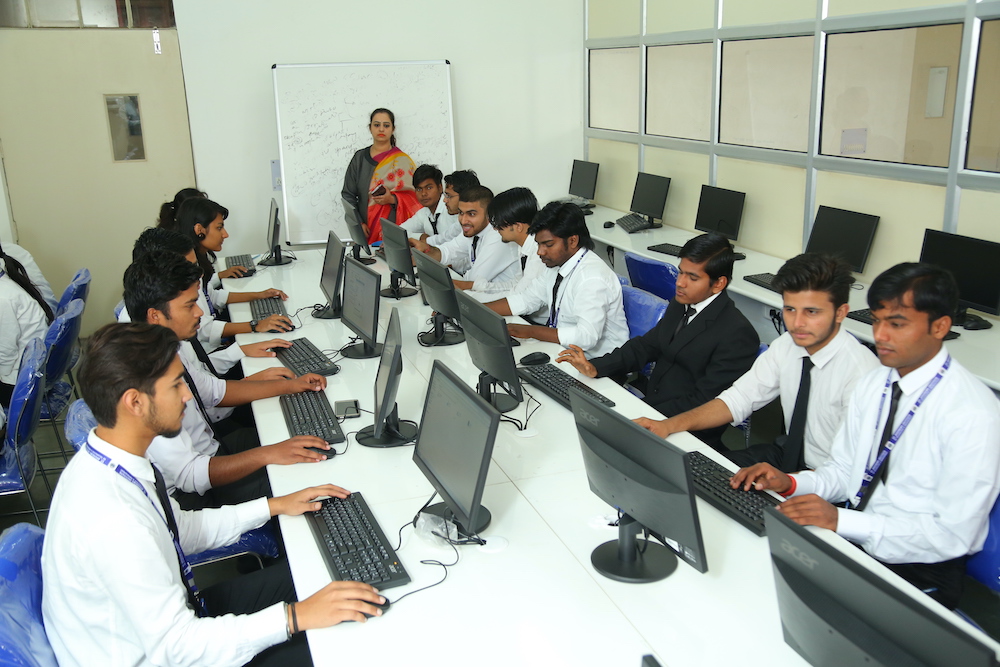
India is home to several top b schools known for their academic excellence, distinguished faculty, and strong placement records.
Here are some of the top business schools in India:
Indian Institute of Management Ahmedabad (IIMA):
- Location: Ahmedabad, Gujarat
- Programs: PGP, PGP-FABM, PGPX, ePGP, Ph.D.
- Key Highlights: Consistently ranked among the top business schools in India, renowned faculty, excellent placement records.
Indian Institute of Management Bangalore (IIMB):
- Location: Bangalore, Karnataka
- Programs: PGP, EPGP, PGPEM, Ph.D.
- Key Highlights: Strong industry connections, focus on research, excellent placement records.
Indian Institute of Management Calcutta (IIMC):
- Location: Kolkata, West Bengal
- Programs: MBA, MBAEx, PGDBA, Ph.D.
- Key Highlights: Strong alumni network, focus on analytics and finance, excellent placement records.
St. Andrews Institute of Technology and Management [SAITM] Gurgaon
- Location: Gurgaon, Haryana
- Programs: MBA
- Key Highlights: Robust corporate connections, excellent placement records, and widespread alumni networks.
Indian School of Business (ISB):
- Location: Hyderabad, Telangana and Mohali, Punjab
- Programs: PGP, PGPMAX, PGP MFAB, PGPMFAB, FPM
- Key Highlights: International faculty, strong industry interface, excellent placement records.
Indian Institute of Management Lucknow (IIML):
- Location: Lucknow, Uttar Pradesh
- Programs: PGP, PGP-ABM, PGP-SM, WMP, IPMX, Ph.D.
- Key Highlights: Strong faculty, good placement records, extensive alumni network.
XLRI – Xavier School of Management:
- Location: Jamshedpur, Jharkhand
- Programs: PGDM-BM, PGDM-HRM, FPM, GMP
- Key Highlights: Focus on human resource management, strong faculty, excellent placement records.
Faculty of Management Studies [FMS], University of Delhi:
- Location: Delhi
- Programs: MBA, Executive MBA, Ph.D.
- Key Highlights: High ROI, excellent faculty, strong industry connections, low fee structure.
National Institute of Industrial Engineering (NITIE):
- Location: Mumbai, Maharashtra
- Programs: PGDIM, PGDISEM, PGDMM, PGDPM, FPM
- Key Highlights: Specialization in industrial engineering and management, strong industry interface, good placement records.
Private MBA Colleges in Delhi
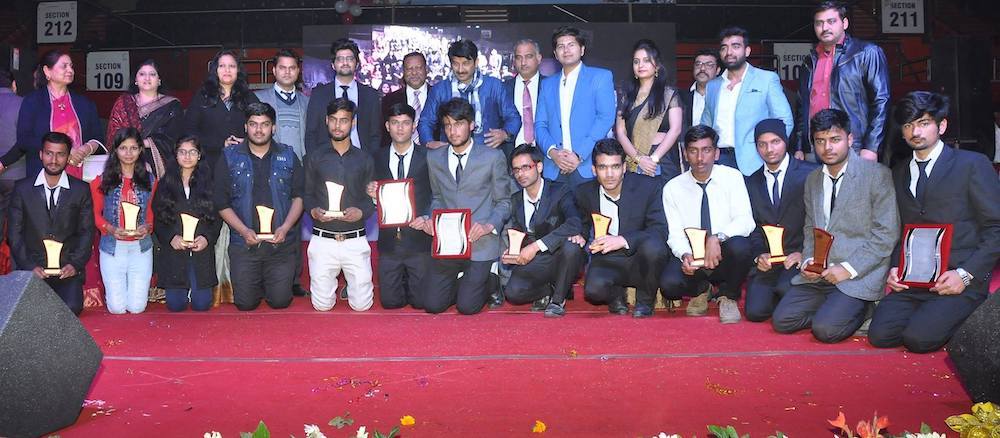
Delhi is home to several prestigious private MBA colleges that offer quality education, experienced faculty, and strong placement opportunities.
Here are some of the top private MBA colleges in Delhi:
St. Andrews Institute of Technology and Management (SAITM),Gurgaon
- Programs: MBA
- Key Highlights: Industry-oriented curriculum, good placement records, strong faculty.
International Management Institute (IMI) Delhi:
- Programs: PGDM, PGDM-HRM, PGDM-B&FS, Executive PGDM
- Key Highlights: International collaborations, strong faculty, good placement records.
FORE School of Management:
- Programs: PGDM, PGDM-IB, PGDM-FM
- Key Highlights: Strong industry interface, focus on research, good placement records.
Lal Bahadur Shastri Institute of Management {LBSIM}:
- Programs: PGDM (General), PGDM (Finance), PGDM (Research & Business Analytics)
- Key Highlights: Strong industry connections, focus on research, good placement records.
Eligibility Criteria for MBA Colleges in India
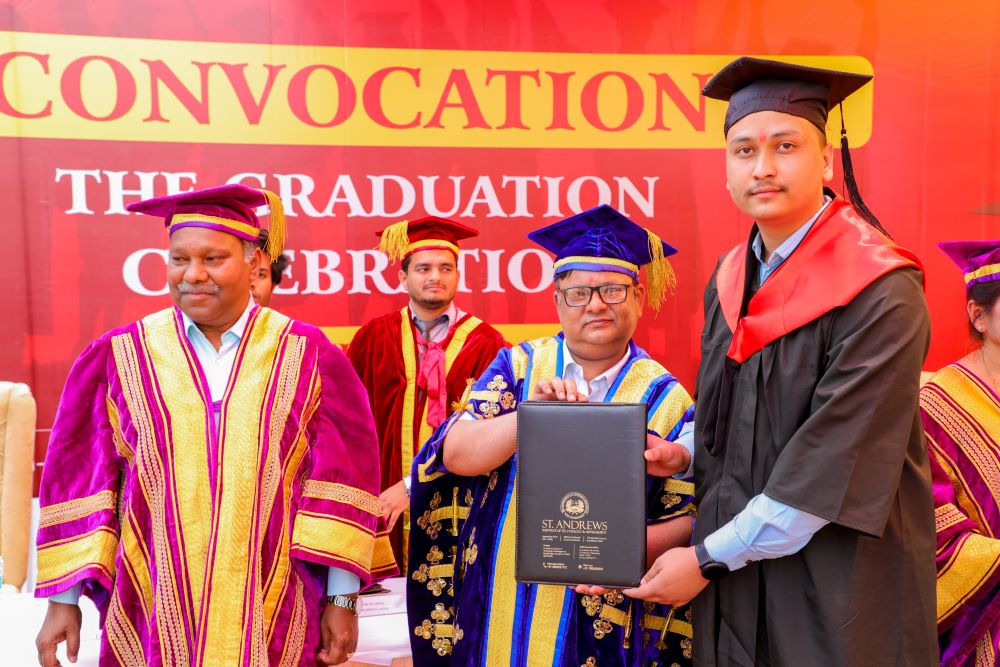
The eligibility criteria for MBA colleges in India can vary slightly from one institution to another.
However, some common requirements are typically observed across most colleges:
Educational Qualification:
Bachelor’s Degree: Candidates must hold a bachelor’s degree or equivalent qualification in any discipline from a recognized university. The degree should be of a minimum of three years duration.
Minimum Percentage: Generally, a minimum aggregate score of 50% (45% for SC/ST/PwD candidates) in the qualifying degree is required.
Entrance Exams:
National Level Exams: Most top MBA colleges in India accept scores from national level entrance exams like CAT (Common Admission Test), XAT (Xavier Aptitude Test), GMAT (Graduate Management Admission Test), and others.
State Level Exams: Some colleges also consider scores from state-level entrance exams such as MAH-CET (Maharashtra Common Entrance Test), TANCET (Tamil Nadu Common Entrance Test), etc.
Work Experience (Optional):
While not mandatory, having work experience can be an added advantage, especially for executive MBA programs. Some institutions might require a minimum of 1-5 years of professional experience for such programs.
Personal Interview and Group Discussion:
Most MBA programs include a second stage of the selection process which involves a Personal Interview (PI), Group Discussion (GD), or Written Ability Test (WAT). Performance in these rounds is crucial for final admission.
English Proficiency:
Proficiency in English is often a prerequisite. International students or those who have completed their previous education in a language other than English may need to provide TOEFL or IELTS scores.
MBA Entrance Exams in India

There are several prominent MBA entrance examinations in India that are recognized by various business schools for admission into their MBA programs.
Here is a list of the major MBA entrance exams:
Common Admission Test (CAT)
Conducting Body: Indian Institutes of Management (IIMs)
Frequency: Annually (November)
Accepted By: IIMs and numerous other B-schools across India
Xavier Aptitude Test (XAT)
Conducting Body: Xavier School of Management (XLRI), Jamshedpur
Frequency: Annually (January)
Accepted By: XLRI and over 150 other B-schools
Common Management Admission Test (CMAT)
Conducting Body: National Testing Agency (NTA)
Frequency: Annually (January/February)
Accepted By: AICTE-approved institutions and universities
Management Aptitude Test (MAT)
Conducting Body: All India Management Association (AIMA)
Frequency: Multiple times a year (February, May, September, December)
Accepted By: Over 600 B-schools across India
Admission Process for Best MBA Colleges in India
The admission process for top management colleges in India typically involves several stages. While the exact process can vary between institutions, the following steps are commonly observed:
Entrance Exam
Candidates must first appear for a relevant entrance exam such as CAT, XAT, GMAT, etc., depending on the college they are applying to.
Score well in the exam to meet the cutoff criteria set by the colleges.
Application Form
Fill out the application form for the respective colleges. This can be done online on the college’s official website.
Provide necessary details, upload required documents, and pay the application fee.
Shortlisting
Based on entrance exam scores and academic performance, colleges shortlist candidates for the next stage of the selection process.
Shortlisted candidates are informed via email or through the college’s admission portal.
Written Ability Test (WAT) / Essay Writing
Many colleges conduct a Written Ability Test (WAT) or ask for an essay to assess the candidate’s writing skills and ability to articulate thoughts.
Group Discussion (GD)
Candidates participate in a Group Discussion (GD) on a given topic. This assesses their communication skills, ability to work in a team, and knowledge on current affairs.
Personal Interview (PI)
A panel interviews the shortlisted candidates. The interview evaluates the candidate’s personality, communication skills, clarity of goals, and suitability for the MBA degree.
Final Selection
The final selection is based on a composite score, which includes entrance exam scores, academic performance, work experience (if applicable), performance in WAT/GD/PI, and sometimes extracurricular activities.
Selected candidates receive an offer letter from the college.
Acceptance and Fee Payment
Candidates must accept the admission offer by paying the required fees within the stipulated time.
Submit all necessary documents for verification.
Example Admission Processes for Top MBA Colleges
Indian Institutes of Management (IIMs)
- Entrance Exam: CAT
- Shortlisting Criteria: CAT score, past academic performance, work experience
- Selection Process: WAT, GD, PI
- Final Selection: Based on CAT scores, performance in WAT/GD/PI, and academic and professional profiles.
St. Andrews Institute of Technology and Management (SAITM), Gurgaon
- Shortlisting Criteria: past academic performance, work experience
- Selection Process: GD, PI
- Final Selection: Based on the GD and PI
Xavier School of Management (XLRI)
- Entrance Exam: XAT
- Shortlisting Criteria: XAT score, academic performance
- Selection Process: GD, PI
- Final Selection: Based on XAT score, GD/PI performance, academic and professional profile
Faculty of Management Studies (FMS), Delhi University
- Entrance Exam: CAT
- Shortlisting Criteria: CAT score, past academic performance
- Selection Process: GD, PI, Extempore speech
- Final Selection: Based on CAT score, GD/PI performance, extempore speech, academic and professional profile
Popular MBA specialisations in India
Here are some popular MBA specialisations in India:
Finance
Focuses on financial management, investment banking, corporate finance, and financial markets.
Courses may include Financial Accounting, Corporate Finance, Investment Analysis, and Financial Modeling.
Marketing
Emphasizes marketing strategies, consumer behavior, market research, and digital marketing.
Courses may cover Marketing Management, Brand Management, Digital Marketing, and Consumer Behavior.
Human Resource Management (HRM)
Concentrates on managing workforce diversity, organizational behavior, labor relations, and talent management.
Key subjects include Human Resource Planning, Organizational Development, Performance Management, and Labor Laws.
Operations Management
Deals with production management, supply chain management, logistics, and quality control.
Courses typically include Operations Strategy, Supply Chain Management, Project Management, and Total Quality Management.
Information Technology (IT)
Integrates management principles with IT knowledge to manage technology-driven businesses.
Subjects may include IT Strategy, E-Business, Systems Analysis, and Data Management.
International Business
Focuses on global trade, international marketing, cross-cultural management, and global supply chains.
Courses often include International Trade, Global Marketing, International Finance, and Cross-Cultural Management.
Entrepreneurship
Encourages innovative thinking, business planning, venture creation, and startup management.
Key topics are Entrepreneurship Development, Business Plan Creation, Venture Capital, and Innovation Management.
Healthcare Management
Specializes in managing healthcare institutions, healthcare policies, and healthcare systems.
Courses may cover Healthcare Policy, Hospital Administration, Healthcare Economics, and Health Information Systems.
Business Analytics
Focuses on data analysis, business intelligence, predictive modeling, and data-driven decision-making.
Core subjects include Business Statistics, Data Mining, Predictive Analytics, and Big Data Technologies.
Supply Chain Management
Involves managing logistics, procurement, inventory control, and distribution networks.
Courses often include Supply Chain Strategy, Logistics Management, Procurement and Sourcing, and Inventory Management.
How to Choose the right MBA college or business school
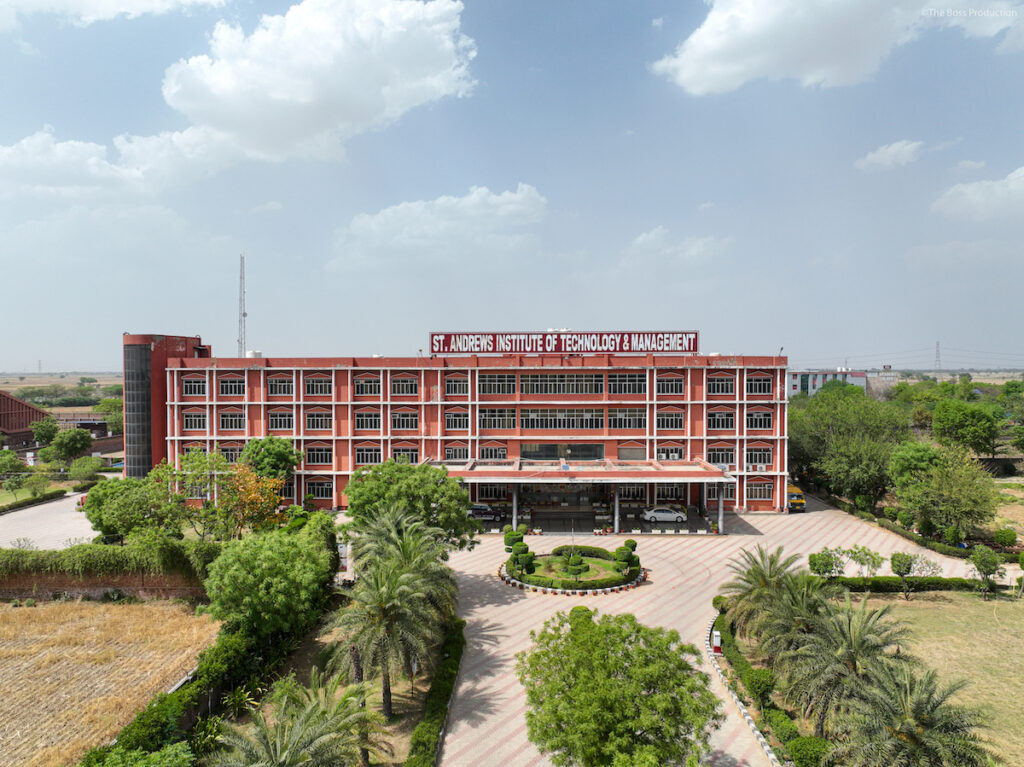
Choosing the right MBA institutes or business school is a crucial decision that can significantly impact your career. Here are some key factors to consider:
1. Accreditation and Ranking
Accreditation: Ensure the college has proper accreditation from recognized bodies (e.g., AACSB, AMBA, EQUIS).
Ranking: Refer to rankings like NIRF in India or global rankings by Financial Times, QS, etc., to gauge the reputation of the institution.
2. Curriculum and Specializations
Curriculum: Look for a curriculum that aligns with your career goals. Check if it offers the latest trends and technologies in business.
Specializations: Ensure the school offers the specialization you are interested in, such as Finance, Marketing, Operations, or Entrepreneurship.
3. Faculty and Research
Faculty: Check the qualifications and experience of the faculty members. Renowned faculty can provide excellent guidance and networking opportunities.
Research Opportunities: A strong research focus can provide valuable insights and add to the learning experience.
4. Placement and Internship Opportunities
Placement Records: Look at the placement statistics, average salary packages, and companies that recruit from the campus.
Internships: Check the availability and quality of internship opportunities, as they provide practical experience and networking.
5. Infrastructure and Facilities
Campus Facilities: Evaluate the campus infrastructure, including libraries, labs, and classrooms.
Technology: Modern facilities and technological support are essential for a contemporary learning experience.
6. Alumni Network
Alumni Success: Research the achievements and positions of the alumni. A strong network can be beneficial for mentorship and job opportunities.
7. Location and Culture
Location: Consider the geographic location, climate, and the local business environment.
Campus Culture: Understand the campus culture and student life. Ensure it aligns with your personality and preferences.
8. Financial Aspects
Tuition Fees: Compare the fee structures and check for any additional costs.
Financial Aid: Look for scholarships, loans, and other financial aid options.
9. Admission Criteria
Entrance Exams: Check the entrance exams required (e.g., CAT, GMAT, GRE).
Admission Process: Understand the selection process, including interviews, group discussions, and other criteria.
10. International Exposure
Exchange Programs: Look for opportunities for international exposure through exchange programs.
Global Partnerships: Check if the school has partnerships with international institutions.
Types of MBA Program
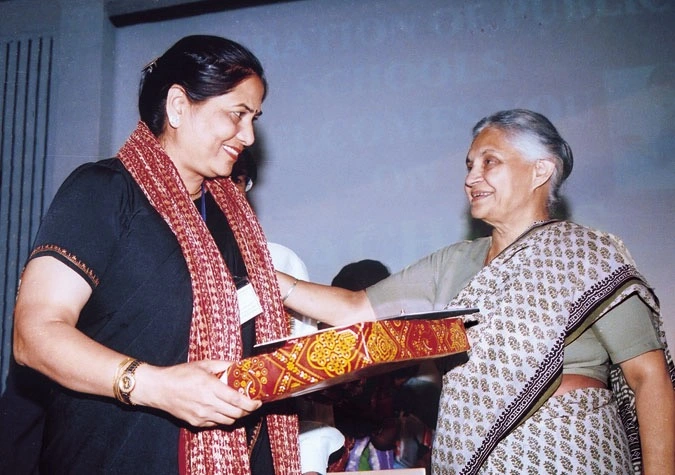
MBA programs come in various formats to cater to different needs and career stages of students.
Here are the main types of MBA programs:
1. Full-Time MBA
- Duration: Typically 1 to 2 years
- Target Audience: Early to mid-career professionals
- Features: Intensive, immersive experience with internships, live projects, and networking opportunities.
2. Part-Time MBA
- Duration: 3 to 5 years
- Target Audience: Working professionals who want to continue working while studying
- Features: Flexible scheduling, evening or weekend classes, can be stretched out over a longer period.
3. Executive MBA (EMBA)
- Duration: 1 to 2 years
- Target Audience: Senior executives and managers with significant work experience
- Features: Focus on leadership and strategic management, classes often held on weekends or in blocks.
4. Online MBA
- Duration: Varies, typically 2 to 3 years
- Target Audience: Professionals seeking flexibility to balance work, life, and studies
- Features: Entirely online or with minimal on-campus presence, asynchronous learning options.
5. Global MBA
- Duration: 1 to 2 years
- Target Audience: International students and professionals aiming for a global career
- Features: International curriculum, study-abroad components, diverse cohorts.
6. Specialized MBA
- Duration: 1 to 2 years
- Target Audience: Professionals aiming to deepen expertise in a specific area
- Features: Focus on a particular industry or function such as finance, marketing, healthcare, technology, etc.
7. Dual Degree MBA
- Duration: Varies, usually 3 to 4 years
- Target Audience: Students wanting to earn two degrees simultaneously (e.g., MBA/JD, MBA/MD)
- Features: Integration of business education with another discipline, often leads to both an MBA and another graduate degree.
8. Accelerated MBA
- Duration: 1 year or less
- Target Audience: Professionals who want to complete their MBA quickly
- Features: Intense, condensed coursework, less time away from the workforce.
Top MBA Colleges in India with Fees Structure
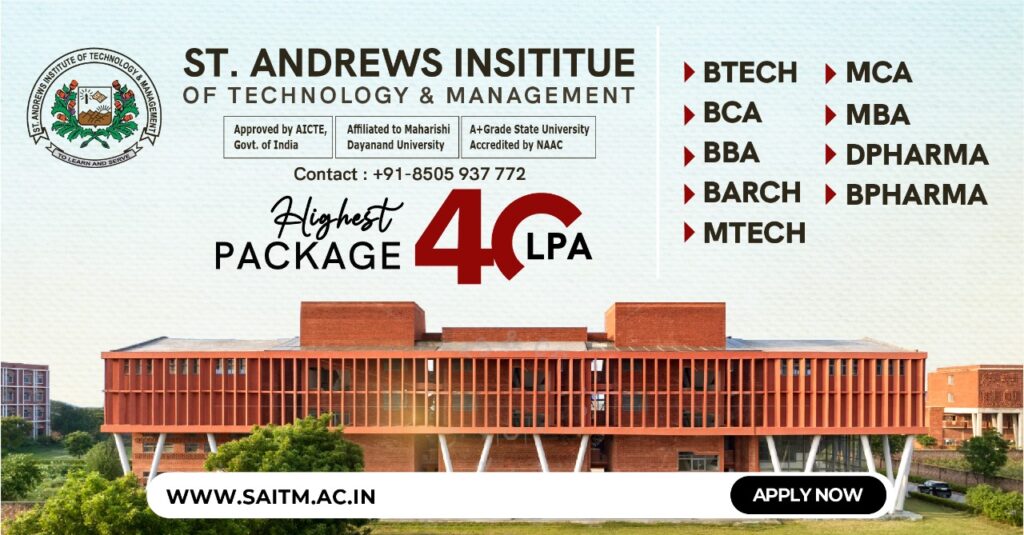
Here are some of the top MBA colleges in India along with their fee structures, known for their rigorous curricula and excellent placement records:
Indian Institute of Management {IIM} Ahmedabad
Fees: Approximately ₹23 lakhs for the full course.
Renowned for its case study approach and strong industry links.
Indian Institute of Management {IIM} Bangalore
Fees: Approximately ₹23 lakhs for the full course.
Known for its research-oriented approach and international collaborations.
Indian Institute of Management (IIM) Calcutta
Fees: Approximately ₹22 lakhs for the full course.
Specializes in finance and has strong ties with the financial services industry.
Indian School of Business (ISB) Hyderabad
Fees: Approximately ₹36 lakhs for the one-year PGP program.
Attracts experienced professionals with a focus on practical application and leadership.
Indian Institute of Management {IIM} Lucknow
Fees: Approximately ₹19 lakhs for the full course.
Offers a balanced curriculum with a focus on sustainable management.
Xavier Labour Relations Institute {XLRI} Jamshedpur
Fees: Approximately ₹20 lakhs for the full course.
Known for its HRM program and high academic standards.
St. Andrews Institute of Technology and Management {SAITM},Gurgaon
Fees: Approximately ₹2.6 lakhs for the full course.
Focuses on developing ethical managers with strong analytical skills.
Indian Institute of Management (IIM) Indore
Fees: Approximately ₹16 lakhs for the full course.
Offers unique programs like the Integrated Programme in Management (IPM).
Faculty of Management Studies (FMS), University of Delhi–
Fees: Approximately ₹1.92 lakhs for the full course.
Known for providing high ROI due to its low fee structure and strong placement record.
Top Recruiters for MBA Graduates in India
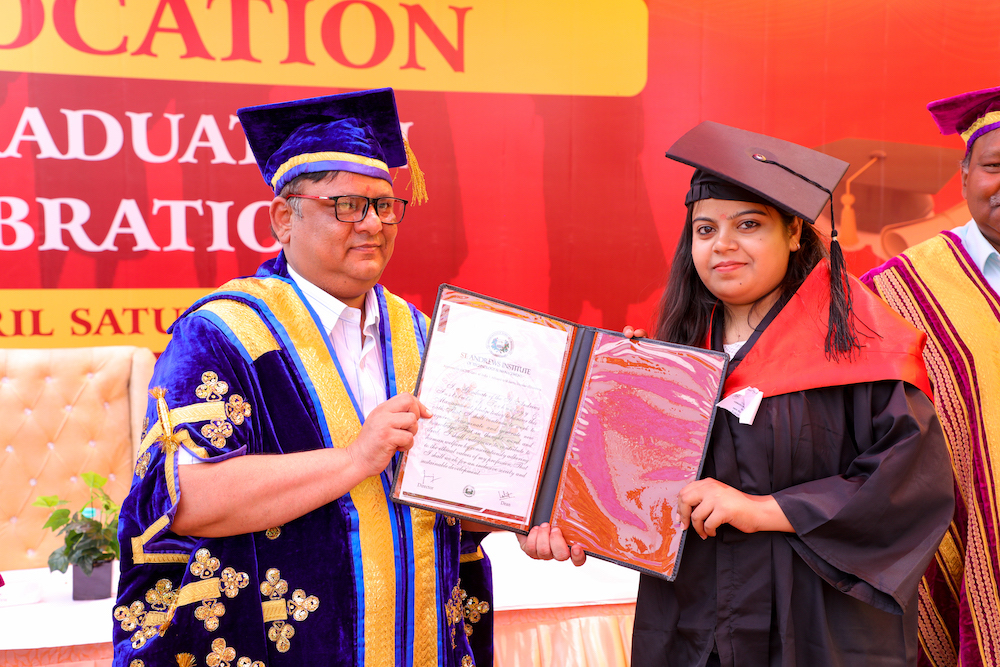
MBA graduates from top management colleges in India attract leading recruiters from various sectors such as consulting, finance, technology, and consumer goods.
Here are some of the top recruiters that actively seek MBA graduates from premier Indian business schools:
Consulting Firms
- McKinsey & Company
- Boston Consulting Group (BCG)
- Bain & Company
- Accenture Strategy
These firms are highly sought after for their strategic insights and management consulting roles, offering roles in strategy consulting, operations, and IT consulting.
Financial Institutions
- Goldman Sachs
- JP Morgan Chase
- Morgan Stanley
- HDFC Bank
Finance roles include investment banking, equity research, corporate finance, and risk management.
Technology Companies
- Microsoft
- Amazon
- Infosys
Technology recruiters offer roles in project management, product management, marketing, and sales, emphasizing the blend of technical and managerial skills.
Consumer Goods Companies
- Hindustan Unilever Ltd (HUL)
- Procter & Gamble (P&G)
- ITC Limited
- Nestlé
FMCG companies are popular for roles in marketing, sales, supply chain management, and operations.
E-commerce and Retail
- Flipkart
- Reliance Industries Limited
- Tata Group
These companies recruit MBAs for roles in e-commerce management, business development, and operations.
Automobile and Manufacturing
- Tata Motors
- Mahindra & Mahindra
- Larsen & Toubro
These firms offer roles in operations management, product development, and strategic management.
Telecommunications
- Airtel
- Vodafone Idea Limited
Telecom companies seek MBAs for roles in network operations, project management, and business strategy.
Pharmaceuticals and Healthcare
- Cipla
- Sun Pharmaceuticals
These companies typically look for MBAs for roles in sales and marketing, product management, and operations.
FAQs
Which is India’s no. 1 MBA college?
India’s No. 1 MBA college is the Indian Institute of Management (IIM) Ahmedabad. Known for its rigorous academic curriculum, exceptional faculty, and strong industry connections, IIM Ahmedabad consistently ranks at the top in the NIRF.
The institute offers a range of MBA courses and is renowned as one of the best MBA colleges, known for its high placement rates and excellent career opportunities for its graduates.
IIM Ahmedabad’s emphasis on innovation and leadership makes it a premier choice for MBA aspirants, solidifying its reputation as a top management school.
Which MBA is the best in India?
The best MBA in India is offered by the Indian Institute of Management (IIM) Ahmedabad. This program is renowned for its rigorous academic curriculum, world-class faculty, and strong industry connections.
IIM Ahmedabad consistently ranks as the top business school in India according to the National Institutional Ranking Framework (NIRF).
The program offers excellent career opportunities, high placement rates, and a focus on leadership and innovation, making it the premier choice for MBA aspirants in India.
What is the highest MBA fee?
The highest MBA fees in India are typically charged by top private business schools and some Indian Institutes of Management (IIMs).
The highest MBA fee is charged by the Indian School of Business (ISB) in Hyderabad, which is approximately ₹39 lakhs for its Post Graduate Program in Management (PGP).
Other IIMs like IIM Ahmedabad, IIM Bangalore, and IIM Calcutta also have substantial fees, ranging from ₹23 lakhs to ₹30 lakhs for their two-year MBA programmes.
Which MBA has low fees?
In India, several reputable institutions offer MBA programs with relatively low fees. Some of these include:
Faculty of Management Studies (FMS), University of Delhi: The total fee for the MBA programme is approximately ₹2 lakhs for the entire course. It is a best MBA college in Delhi.
Department of Management Sciences (PUMBA), Savitribai Phule Pune University: The fee for the MBA program is around ₹1.3 lakhs.
St. Andrews Institute of Technology and Management (SAITM), Gurgaon: The fee for the MBA course is approximately ₹2.6 lakhs. It is a best MBA college.
Which is rank 1 business school in India?
According to the National Institutional Ranking Framework (NIRF), the best MBA school in India is the Indian Institute of Management (IIM) Ahmedabad, which holds the rank 1 position.
What is the #1 business school in the US?
The #1 private business school in the US is the Stanford Graduate School of Business (Stanford GSB). Renowned for its prestigious MBA program, innovative curriculum, and strong emphasis on entrepreneurship and leadership, Stanford GSB consistently ranks at the top in various national and international business school rankings.
What is the difference between MBA and business school?
An MBA (Master of Business Administration) and a business school are related but distinct concepts:
MBA (Master of Business Administration):
- A graduate-level degree focused on business and management skills.
- Typically includes courses in finance, marketing, operations, strategy, and leadership.
- Designed to prepare students for leadership roles in various industries.
- Can be pursued full-time, part-time, or online.
Business School:
- An institution or a division within a university that offers business-related courses and degrees.
- Provides various programs such as undergraduate degrees (BBA, BCom), graduate degrees (MBA, MSc in Management), and doctoral programs (PhD, DBA).
- May offer specialized programs in areas like finance, marketing, entrepreneurship, and international business.
- Examples include Harvard Business School and Wharton School of the University of Pennsylvania.
What is the difference between business school and university?
The difference between a business school and a university can be understood in terms of scope, focus, and organizational structure:
Scope:
Business School: A business school is a specialized institution or a department within a university that focuses exclusively on business and management education. It offers programs related to business administration, finance, marketing, entrepreneurship, and other business-related fields.
University: A university is a comprehensive institution that offers a wide range of academic programs across various fields of study, including humanities, sciences, engineering, medicine, law, and more, in addition to business.
Focus:
Business School: The primary focus is on providing education and training in business and management. The curriculum is designed to prepare students for careers in business, leadership, and entrepreneurship.
University: A university provides a broad education across many disciplines. It aims to foster a well-rounded education, encouraging interdisciplinary studies and research across diverse fields.
Organizational Structure:
Business School: Often operates as a distinct entity within a larger university or as an independent institution. Examples of standalone business schools include Harvard Business School and Wharton School of the University of Pennsylvania.
University: Comprises multiple faculties or schools, including the business school as one of its components. Other faculties may include arts and sciences, engineering, law, medicine, and more.

